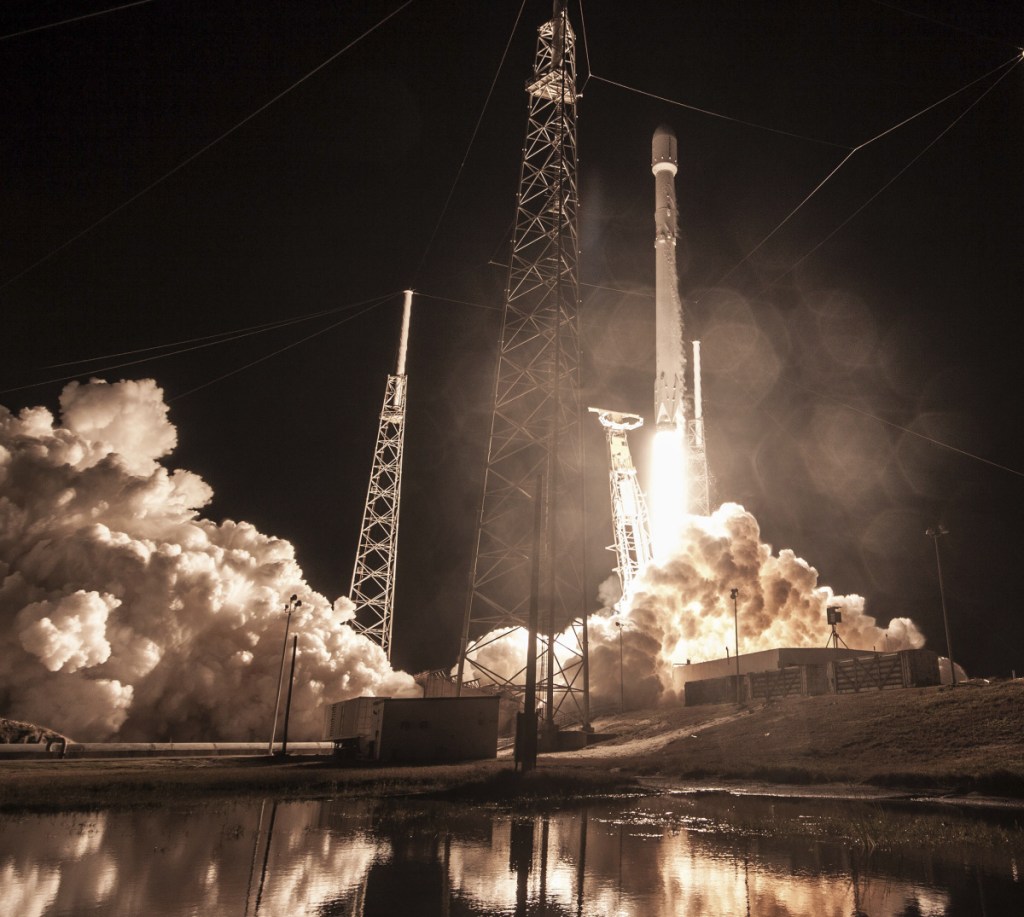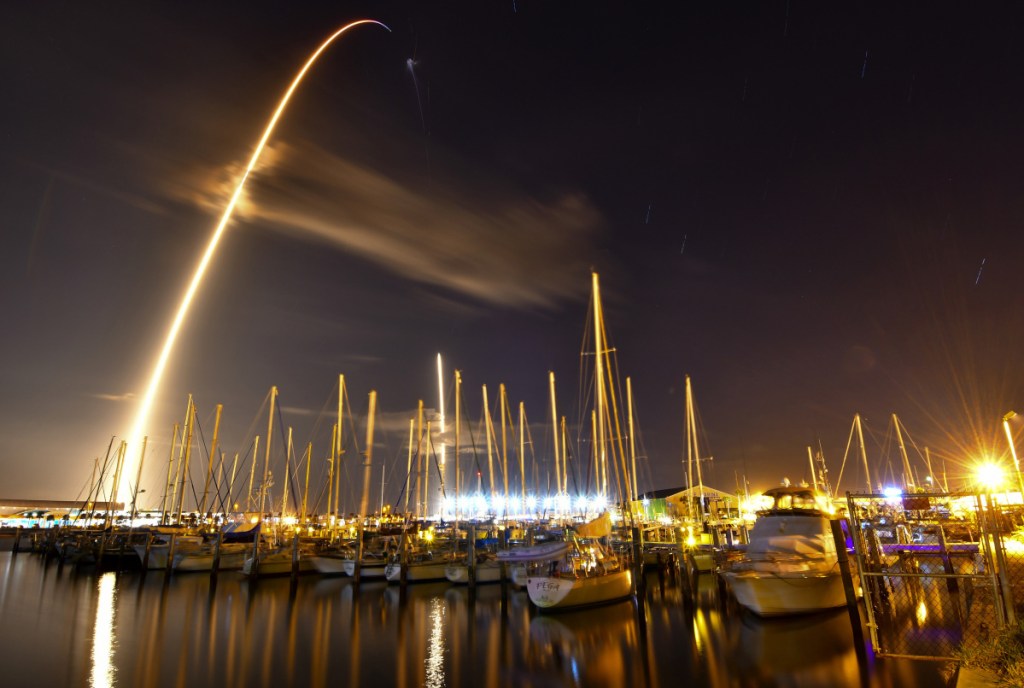The top-secret satellite known only by a code name “Zuma” was a mystery from the start.
Its classified mission was intentionally inscrutable – whether to detect missile launches, spy on adversaries, or to track ships at sea with a space radar.
The satellite was so highly secretive that it was not publicly released what government agency – National Reconnaissance Office? Central Intelligence Agency? – was responsible for it.
During the launch last Sunday, SpaceX cut short its webcast so that it wouldn’t reveal any details of where the satellite was going or what it looked like.
Now there’s another mystery: What happened to Zuma?
After reports Monday that the satellite suffered some sort of failure, SpaceX rushed to defend its reputation, denying that it had done anything wrong. Its Falcon 9 rocket “performed nominally,” it said.
STAKES HIGH FOR SPACEX
Then, on Tuesday morning, SpaceX President Gwynne Shotwell issued a more strongly worded statement, saying: “For clarity: after review of all data to date, Falcon 9 did everything correctly on Sunday night. If we or others find otherwise based on further review, we will report it immediately.”
Shotwell pushed back on reports that seemed to implicate SpaceX with the satellite’s demise, saying “information published that is contrary to this statement is categorically false.”
Northrop Grumman, the satellite’s manufacturer, said it could not comment on a classified mission. As individual members of Congress began requesting classified briefings about what, if anything, went wrong, Pentagon officials were also silent.
For SpaceX, the stakes are especially high – not just because a national security asset valued at hundreds of millions of dollars that it was hired to launch was possibly lost. But because it had fought so hard for the right to compete for national security launches. After a bitter legal and lobbying battle, the Pentagon certified SpaceX’s Falcon 9 for the missions and now is relying on SpaceX to reliably fly its satellites to orbit.
NASA is counting on Elon Musk’s company to fly astronauts to the International Space Station, with test flights as early as this year.
SpaceX’s resolve and relentless drive was unchanged by the mystery surrounding Zuma. Last year, the company launched 18 times successfully, a record for SpaceX. This year, it plans to break that record, continuing its disruption of an industry Musk first targeted when he founded SpaceX in 2002.
As critics were quick to call SpaceX’s reliability into question, the company rolled its powerful new rocket, the Falcon Heavy, onto the same launchpad at the Kennedy Space Center that hoisted the Apollo astronauts to the moon. An engine test fire was postponed from earlier in the week and was last scheduled for Saturday afternoon. Despite the Zuma mystery, SpaceX vowed to continue with its manifest without delay.
That in itself was a statement: “They’re not going to launch again if they think there’s a chance it was their fault,” said Todd Harrison, a defense analyst at the Center for Strategic and International Studies.
SMOOTH LIFTOFF
Matt Desch, the chief executive officer of Iridium, a communications satellite company that is one of SpaceX’s biggest customers, said in an interview that he “absolutely” had full confidence in SpaceX and that he had no qualms with proceeding with the four launches Iridium has on the Falcon 9 this year.
“We’re moving forward with plans for our next launch,” he said. “I know there are people who would love SpaceX to be taken down a few notches. And I’d be glad to hold them accountable for things they should be held accountable for. But this isn’t one. I believe they weren’t really responsible.”
On Sunday night, the SpaceX’s launch appeared to go smoothly. The company cheered a successful liftoff and then the touchdown of its first-stage booster back on land so that it could be flown again, a practice designed to lower the cost of spaceflight. Musk on Monday tweeted out a long-exposure picture of the launch showing its fiery tail to space – and then the return of the booster,which has now become routine for the company.
The Air Force’s 45th Space Wing also congratulated SpaceX in a tweet.
Send questions/comments to the editors.




Success. Please wait for the page to reload. If the page does not reload within 5 seconds, please refresh the page.
Enter your email and password to access comments.
Hi, to comment on stories you must . This profile is in addition to your subscription and website login.
Already have a commenting profile? .
Invalid username/password.
Please check your email to confirm and complete your registration.
Only subscribers are eligible to post comments. Please subscribe or login first for digital access. Here’s why.
Use the form below to reset your password. When you've submitted your account email, we will send an email with a reset code.